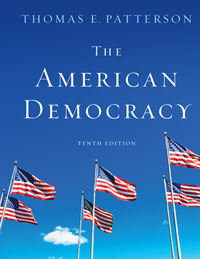1 Federalist No.76, Alexander Hamilton declared that the president's real authority as chief executive isA) the power to appoint. B) the power to declare war. C) the power to receive ambassadors. D) the power to make treaties. E) both the power to declare war and the power to make treaties. 2 A) Whig theory. B) stewardship theory. C) executive theory. D) modern theory. E) elastic theory. 3 A) are written statements by the president to indicate that an executive order is to be carried out even if it conflicts with existing legislation. B) are attached by the president to proposed legislation to indicate that the president will veto the legislation should it pass Congress. C) are attached to legislation proposed indirectly by the president to indicate that said legislation would not earn a veto if passed in its current form. D) are appended to a bill when the president signs it and are meant to indicate that the president does not necessarily intend to abide by particular provisions of a law. E) are statements of objection that a lawmaker may attach to a bill even though that bill has passed the lawmaker's branch of Congress. 4 A) Samuel Tilden (1876), Grover Cleveland (1888), and Harry Truman (1948) B) Rutherford B. Hayes (1876), Benjamin Harrison (1888), and George W. Bush (2000) C) Ulysses S. Grant (1868), Benjamin Harrison (1888), and George W. Bush (2000) D) James Garfield (1880), Woodrow Wilson (1912), and Richard Nixon (1968) E) James Buchanan (1856), Woodrow Wilson (1912), and George W. Bush (2000) 5 A) Richard Nixon (1968) B) Barry Goldwater (1964) C) Hubert Humphrey (1968) D) George McGovern (1972) E) Jimmy Carter (1976) 6 A) 50 B) 40 C) 30 D) 20 E) 5 7 A) New York, Florida, and Pennsylvania. B) Texas, Illinois, and Ohio. C) California, Texas, and New York. D) Illinois, Pennsylvania, and Michigan. E) Georgia, North Carolina, and Texas. 8 A) California and New Jersey B) Florida and Georgia C) Nevada and Utah D) Maine and Nebraska E) New Hampshire and Vermont 9 A) The individual must be 35 years old. B) The individual must be a natural-born citizen. C) The individual must be a resident in the United States for at least 14 years. D) The individual must be resident of the same state for at least five years. E) None of these answers is correct, as all are formal requirements for becoming president. 10 A) Presidential executive agreements with other countries are not legally binding in the way formal treaties are. B) The framers anticipated that Congress would implement the president's foreign policy agenda. C) The framers anticipated that the president would define the nation's foreign policy objectives. D) Ambassador appointments made by the president are subject to approval by a two-thirds vote of the House of Representatives. E) Treaties made by the president are subject to approval by a two-thirds vote of the Senate. 11 A) forcing Congress to meet in unscheduled open sessions B) removing unfriendly Supreme Court justices from office C) rejecting the Senate's power to approve treaties D) challenging the power of business monopolies E) taking the country into World War I 12 A) Legislative Liaison Staff B) National Security Council C) State Department D) Department of Defense E) Executive Office of the President 13 A) Richard Nixon and Bill Clinton B) Bill Clinton and James Polk C) Richard Nixon and Andrew Johnson D) James Polk and Andrew Johnson E) Bill Clinton and Andrew Johnson 14 A) He cast only two vetoes in his first five years of his presidency. B) He got almost nothing he asked for from Congress in the early years of his presidency. C) In the early years of his presidency, he got most of what he asked for from Congress. D) His relationship with Congress became less contentious during the later years of his presidency. E) He exercised more vetoes in the early years of his presidency than any other twentieth-century president. 15 A) Theodore Roosevelt B) Calvin Coolidge C) Warren Harding D) William Howard Taft E) Herbert Hoover 16 A) Federal Reserve. B) Presidential Economic Council. C) Executive Financial Planning Office. D) National Economic Council. E) Treasury Office. 17 A) George Washington B) Thomas Jefferson C) Andrew Jackson D) James Madison E) James Monroe 18 A) Lyndon Johnson B) Richard Nixon C) Gerald Ford D) George H. W. Bush E) George W. Bush 19 A) 435 B) 538 C) 535 D) 600 E) 750 20 A) National Security Council B) White House Office C) Office of Management and Budget D) National Economic Council E) All these answers are correct.





